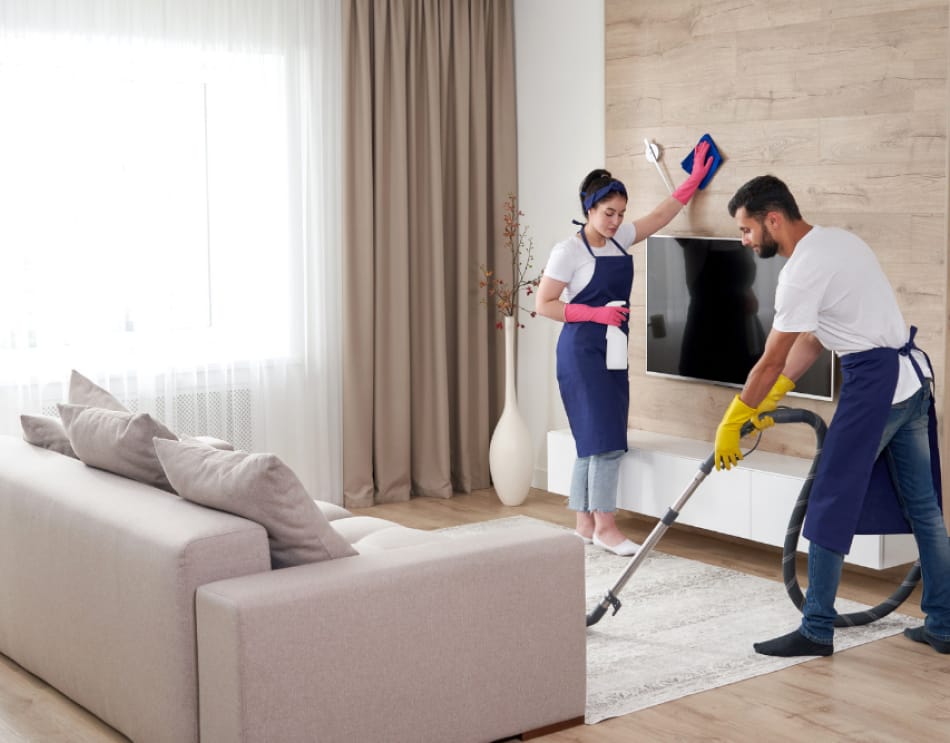
COVID-19 has made the world rethink their cleaning habits and sanitization routines. People are more aware of allergens, bacteria, pests, and pet droppings, causing loved ones to become sick. But, in lieu of creating a healthy environment, are we exposing our homes to complex and harmful chemicals through cleaning agents?
It’s not surprising that various household cleaners are available in the market globally, each fulfilling a diverse purpose, but that doesn’t mean they’re devoid of their shortcomings. Let’s look at a few types of cleaning agents so that you can make informed choices.
Abrasives
Typically used to scrub hard surfaces, sodium hydroxide and sodium carbonate found in scouring powders, meshes, steel wool, and cleaning pads are mainly used to remove dirt off floors, pans, and pots. Coarse abrasives such as pumice, sandpaper, marble, silica, rottenstone, and quartz are rough and gritty. If used regularly, they can gradually remove the glaze or coating, causing scratches on the surfaces, damaging cutlery and cookware, and other appliances.
Alkalis
Varying in strength, some soluble salts are toxic, while others are corrosive. Alkalis with a stronger PH can irritate the skin and sometimes cause burns. As they form an emulsion without breaking, alkalis are good grease and oil removers. Sodium bicarbonate, known as ‘soda’ in households, Borax powder and ammonia found in all-purpose cleaners including window and oven cleaners, and caustic soda found in drain openers are all prime examples of alkalis.
Acids
Generally used to remove rust and mineral deposits from dishwashers, discoloring from rust stains, and hard water deposits from cookware and cutlery. Acids are poisonous and corrosive; they can damage clothes, leather, irritate skin and eyes, and harm metals. Vinegar, lemon juice, oxalic acid, citric acid, and hydrochloric acid are a few types found in cleaners.
Bleaches
Primarily soil and stain removers, bleaching agents are also widely used to disinfect and destroy bacteria, allergens, mold, and viruses. Sodium hypochlorite based products are popular for grout and tile cleaning.
Choose Professional Cleaning Services That Use ‘Green’ Products
According to the Cleaning Product Ingredient Inventory of the American Cleaning Institute (ACI), cleaning agents are made up of several unique ingredients, including solvents such as ethanol, chlorine, and polymer colorants, fragrant, preservatives, and antimicrobial agents. To avoid damage or misuse, hiring a house cleaning service is recommended.
Professional maids always stick to a cleaning routine and have sound knowledge about which chemical to use where for the best results. Budget Maids always uses ‘green’ products so that no toxins that can potentially trigger reactions linger in the air.
Having been in the industry for over 15 years, the Budget Maids team can make houses spotless, germless, and odorless with advanced systematic cleaning solutions and sanitizing techniques. Our cleaning specialists focus on your home’s high-touch areas to ensure no germs, pathogens, or allergens are lurking.
Book a house cleaning service with our cleaning specialists online today. If you’re in Rockville, Clarksville, Bethesda, and Fairfax, you can avail up to a 35% discount when you book our services. You can call us at 301-515-6213 to tell us your requirements or know more about the online booking and payments option.





